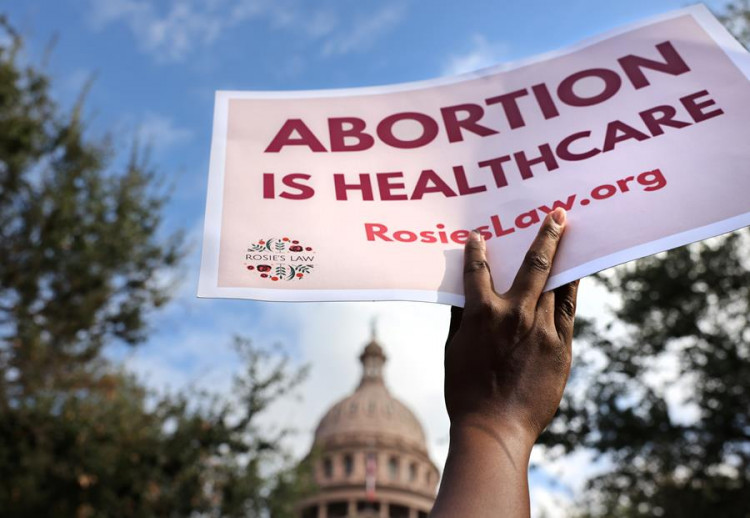The Georgia Supreme Court on Monday reinstated the state's six-week abortion ban, once again limiting access to reproductive care in one of the nation's most contentious battleground states. The decision comes as the court reviews an appeal from the state challenging a recent lower court ruling that had blocked the restrictive law. The move has rekindled a fierce debate over reproductive rights, just as the political stakes are rising ahead of the 2024 presidential election.
The reinstated law, known as the LIFE Act, bars abortion procedures as soon as a fetal heartbeat is detected, which can occur as early as six weeks into pregnancy-often before many women even know they are pregnant. The ban includes exceptions for cases where the mother's life is at risk or in instances of certain fetal anomalies. The law was originally signed by Governor Brian Kemp in 2019 but only went into effect in 2022, following the U.S. Supreme Court's reversal of Roe v. Wade.
Fulton County Superior Court Judge Robert McBurney had initially struck down the ban last week, allowing abortions to resume up to 22 weeks into pregnancy. In his ruling, McBurney argued that "liberty in Georgia includes the power of a woman to control her own body, to decide what happens to it and in it, and to reject state interference with her healthcare choices." However, he acknowledged that this liberty has limits, especially once a fetus reaches viability.
The state Supreme Court's latest decision, which took effect at 5 p.m. local time Monday, leaves many Georgians facing renewed uncertainty about access to abortion services. While the court continues its review of the state's appeal, the temporary reinstatement of the ban has sparked an outcry from reproductive rights groups and raised new questions about the future of abortion laws in the state.
"This is a devastating setback for women in Georgia," said Kwajelyn Jackson, executive director of Feminist Women's Health Center. "Our patients' ability to access the reproductive healthcare they need has been taken away yet again. This ban has wreaked havoc on Georgians' lives, and our patients deserve better."
Planned Parenthood Southeast spokesperson Jaylen Black echoed these sentiments, calling the court's ruling "an egregious example of how far anti-abortion lawmakers and judges will go to strip Georgians of their fundamental rights." Black also highlighted the tragic cases of Amber Nicole Thurman and Candi Miller, two women whose deaths in 2022 were linked to complications arising from Georgia's restrictive abortion laws. "These preventable deaths will continue to harm Georgians as long as this ban remains in effect," Black added.
The controversy surrounding Georgia's abortion law has intensified the national spotlight on reproductive rights, with Vice President Kamala Harris making it a central issue in her campaign. Harris has specifically pointed to the case of Amber Nicole Thurman, who died after delays in care due to the state's abortion restrictions. Her story has become a rallying point for advocates pushing to overturn restrictive abortion measures nationwide.
Meanwhile, anti-abortion advocates in Georgia have praised the Supreme Court's decision to reinstate the ban, arguing that it aligns with the state's commitment to protecting life from the earliest stages. The offices of Georgia Gov. Brian Kemp and Attorney General Chris Carr have not yet commented on the ruling, but they have previously supported the LIFE Act as a step toward safeguarding what they term "unborn lives."
The decision to reinstate the ban also leaves in place a lower court ruling that blocked another provision of the LIFE Act, which had allowed state prosecutors broad access to the medical records of abortion patients without proper due process. Critics argue that this provision threatened patient privacy and could lead to the criminalization of healthcare providers.
Legal experts say the Georgia Supreme Court's ruling reflects the shifting judicial landscape in the U.S. following the Supreme Court's dismantling of federal abortion rights protections. "This decision by the Georgia Supreme Court is a bellwether for what could happen in other states grappling with similar legal battles over restrictive abortion laws," said legal analyst Margaret Collins. "It's clear that this fight is far from over, and it will continue to play a significant role in shaping the political discourse ahead of the 2024 elections."
The reinstatement of the ban comes as Georgia remains a key state in the national abortion debate, with both sides mobilizing their efforts. The state's stance on abortion could significantly influence voter sentiment in the upcoming presidential race, as reproductive rights take center stage in campaign messaging.
As the legal battle continues, many Georgians are left navigating the complexities of a rapidly changing legal landscape. For those seeking care, the uncertainty is profound, and the consequences are real. "Every day this ban is in effect, women in Georgia are being denied critical healthcare," said Monica Simpson, executive director of SisterSong Women of Color Reproductive Justice Collaborative. "We will continue to fight for the rights of all Georgians to make their own healthcare decisions without political interference."






